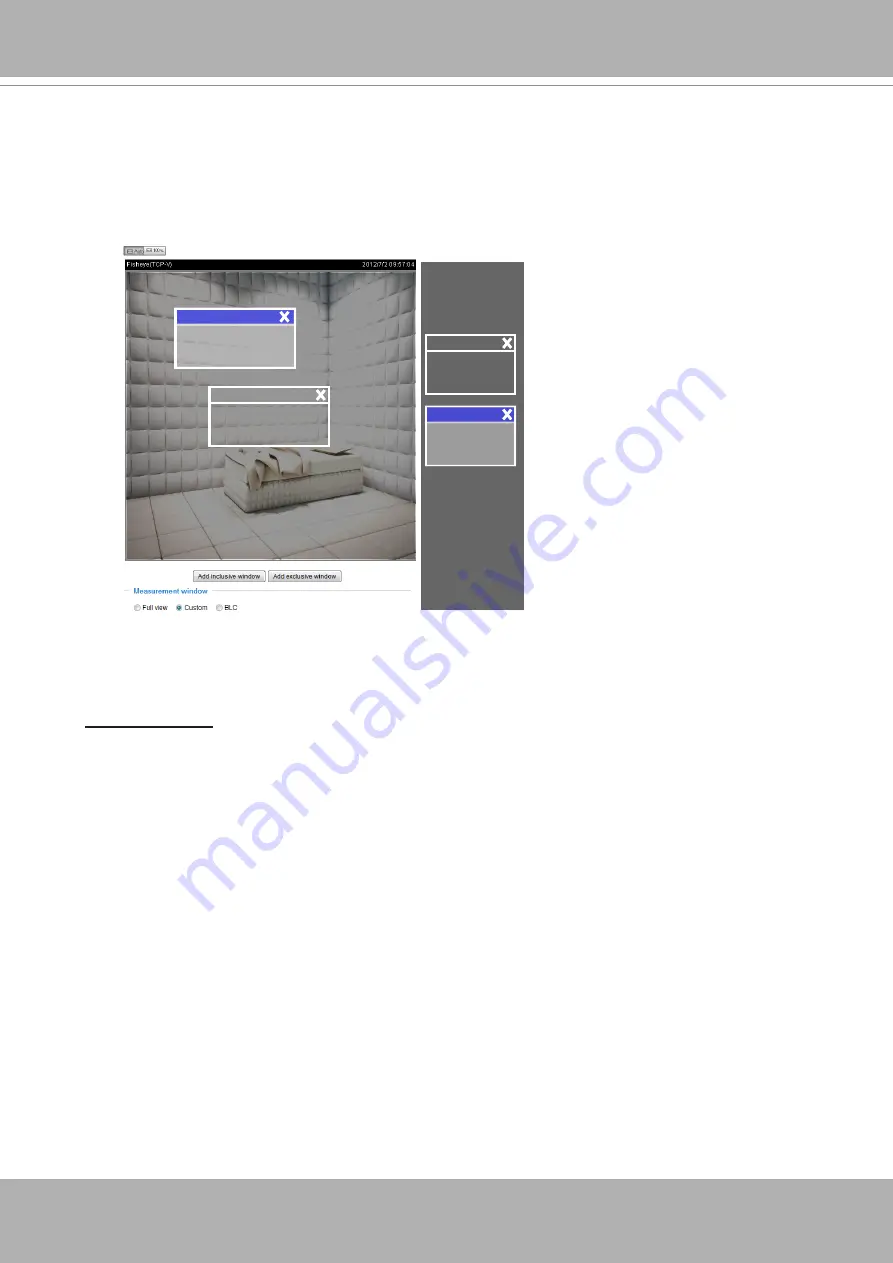
VIVOTEK
User's Manual - 59
Exposure control:
■
Exposure level
: You can manually set the Exposure level, which ranges from -2.0 to +2.0 (dark
to bright). You can click and drag the semi-circular pointers on the
Exposure time
and
Gain
control
slide bars to specify a range of shutter time and Gain control values within which the
camera can automatically tune to an optimal imaging result. You may prefer a shorter shutter
time to better capture moving objects, while a faster shutter reduces light and needs to be
compensated by electrical brightness gains.
■ Flickerless
: This function helps avoid the flickering on images because of the fast shutter
movement and the inconsistency between power line frequency (50 or 60Hz) and exposure time.
When selected, the exposure time will be forced to stay longer than 1/120 second. For cameras
that come with fixed iris lens, setting the exposure time to longer than 1/120 second may
introduce too much lights to the lens. Users can use this option to observe whether the result of
long exposure time is satisfactory.
The inclusive window refers to the “weighed window“; the exclusive window refers to “ignored
window“. It adopts the weighed averages method to calculate the value. The inclusive windows
have a higher priority. You can overlap these windows, and, if you place an exclusive window
within a larger inclusive window, the exclusive part of the overlapped windows will be deducted
from the inclusive window. An exposure value will then be calculated out of the remaining of the
inclusive window.
■
BLC
(Back Light Compensation): This option will automatically add a “weighted region“ in the
middle of the window and give the necessary light compensation.
Include
Exclude
Weighted region
Ignored region
Include
Exclude
■
Exposure control:
You can click and drag the semi-circular pointers on the
Exposure time
and
Gain control
slide
bars to specify a range of shutter time and Gain control values within which the camera can
automaticallly tune to an optimal imaging result. You can also configure the exposure time to
control the amount of light. For example, you may prefer a shorter shutter time to better capture
moving objects, while a faster shutter reduces light and needs to be compensated by electrical
brightness gains.






























